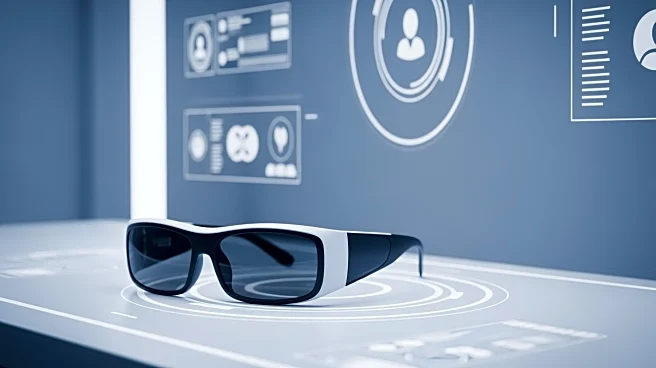What's Happening?
Several tech companies are making strides in the augmented reality (AR) market with new product launches aimed at both consumer and enterprise sectors. Meta has moved beyond concept demos to working apps
with its Orion prototypes, featuring a tiny display in one lens and a wristband controller for gesture mapping. Amazon has introduced AI smart glasses for delivery drivers, designed to reduce phone checks and speed up routes, showcasing a clear enterprise return on investment. Brilliant Labs is offering the Halo AR glasses at a consumer-friendly price of $299, promising practical features like name recall. These developments indicate a shift from niche demos to everyday applications, with companies like Google and Samsung working on Android XR to standardize AR technology.
Why It's Important?
The introduction of affordable AR glasses is significant as it lowers the entry barrier for consumers who have been hesitant due to high prices. This could lead to increased adoption of AR technology in everyday life, enhancing productivity and convenience. For businesses, the use of AR in logistics and training could streamline operations and improve efficiency. The collaboration between Google and Samsung on Android XR aims to create a unified platform for developers, potentially accelerating the availability of AR applications. As AR technology becomes more mainstream, it could transform various industries, from retail to healthcare, by offering innovative solutions and improving user experiences.
What's Next?
As these AR products hit the market, consumer and enterprise adoption will be closely monitored. Companies may conduct pilot programs to test the effectiveness of AR in real-world scenarios, particularly in logistics and training. The success of these initiatives could lead to broader implementation across industries. Additionally, the development of more AR applications by a growing developer base could further drive consumer interest and usage. Regulatory discussions may also arise regarding privacy concerns related to wearable cameras, potentially influencing future product designs and policies.
Beyond the Headlines
The ethical implications of AR technology, particularly concerning privacy and data security, are likely to become more prominent as these devices become widespread. Companies will need to address these concerns to gain consumer trust and ensure compliance with regulations. The cultural impact of AR, as it integrates into daily life, could also lead to shifts in how people interact with technology and each other, potentially redefining social norms and behaviors.










